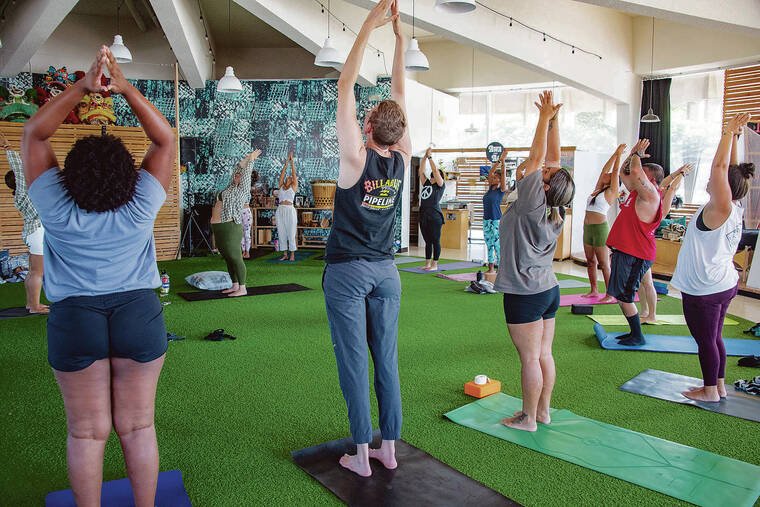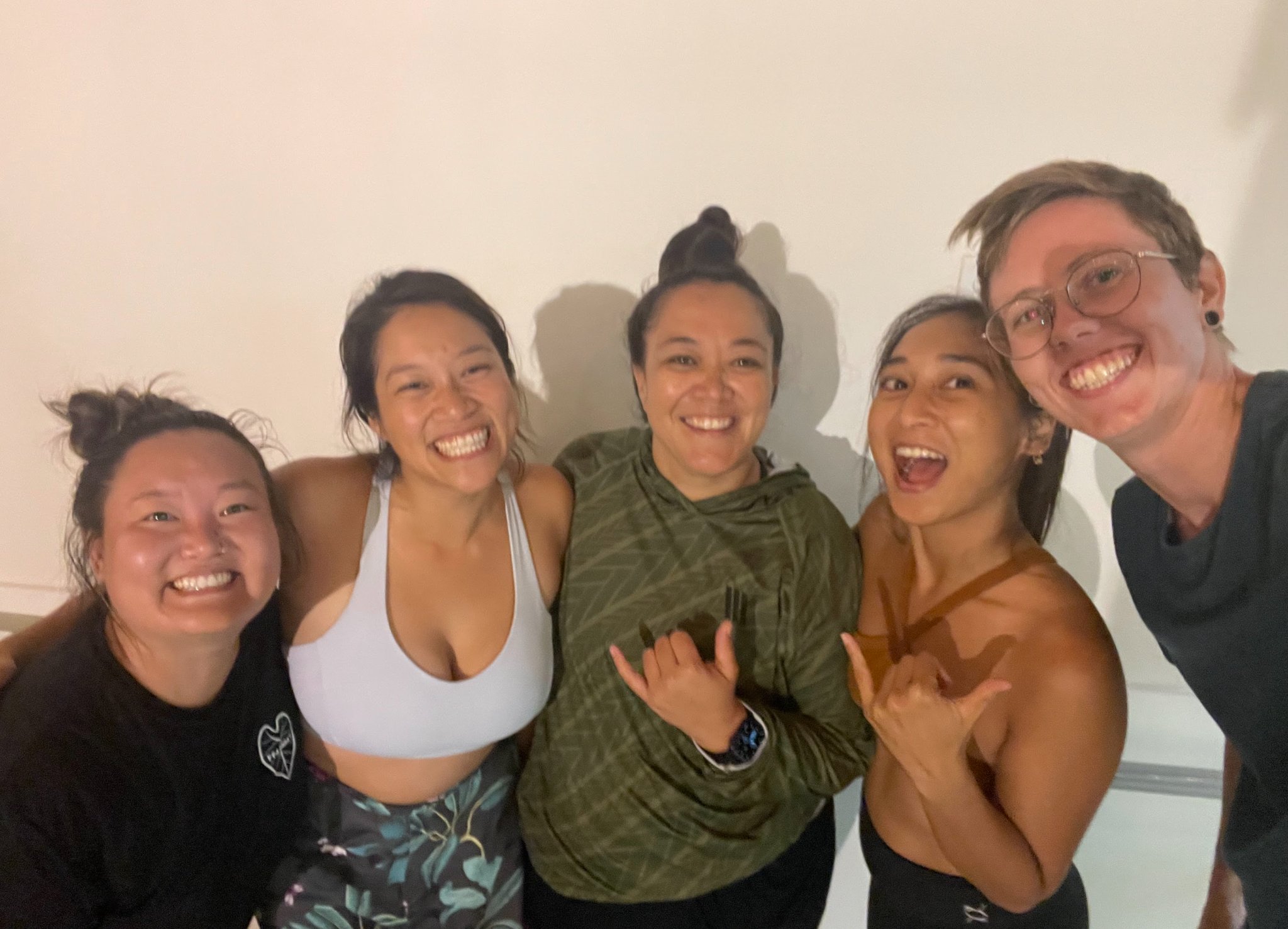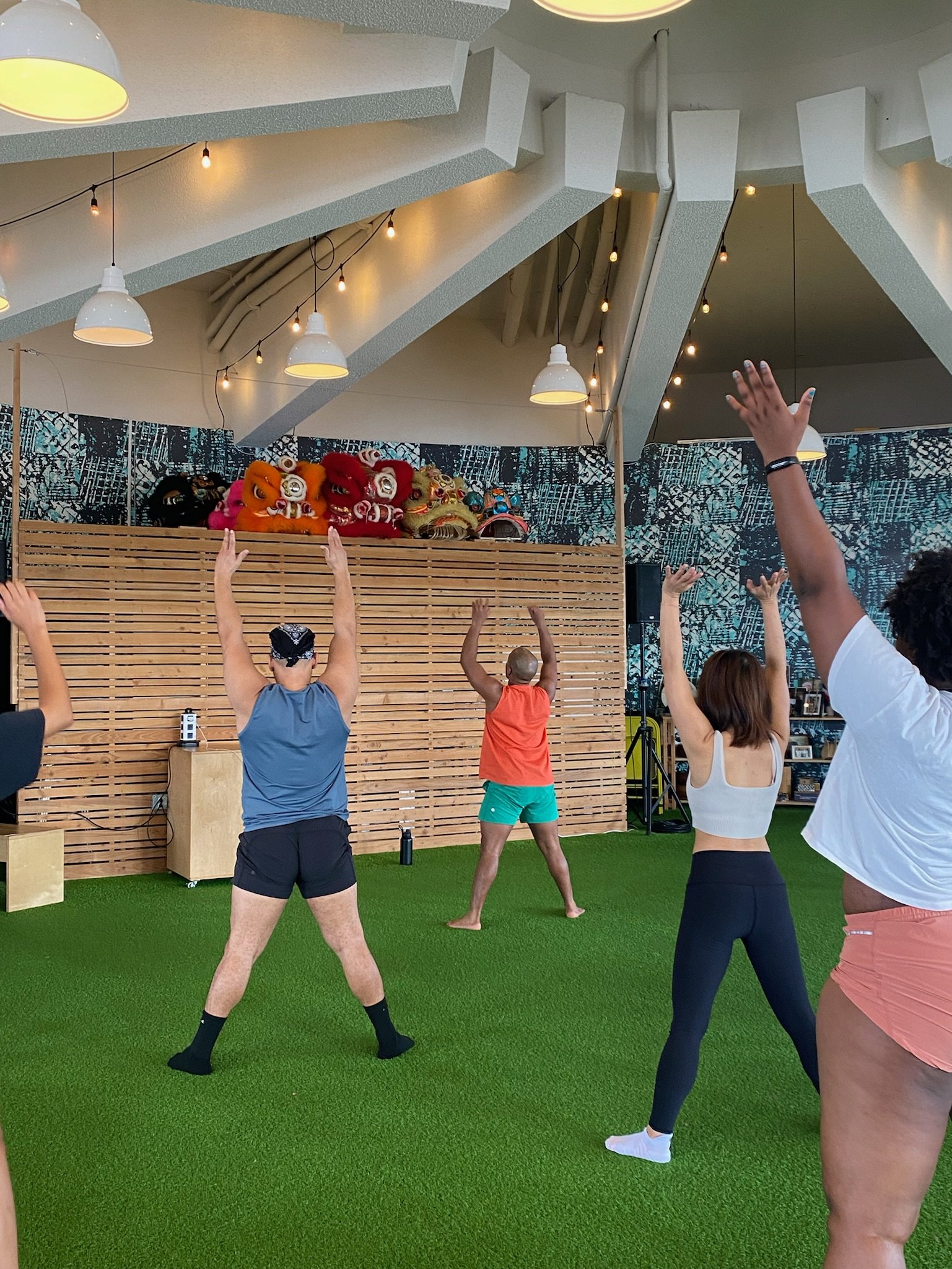The Importance of Trauma-Informed Care in Hawai‘i
Understanding trauma is crucial for the future of our hui and here’s why.
April 26, 2024 | Honolulu, O‘ahu
If you are new to Project Koa Yoga (PKY) or have perused our website, you may be curious about what it means for us to offer “Trauma-Informed yoga.” In today’s blog we would like to talk about what trauma is and the importance of trauma-informed programs, especially here in Hawai‘i.
To start, let’s try to define what trauma is. There have been decades of work in the field of trauma research and many definitions have come about over the years. However, today, the most commonly referenced definition of individual trauma is from the Substance Abuse and Mental Health Services Administration (SAMHSA):
“Individual trauma results from an event, series of events, or set of circumstances that is experienced by an individual that has lasting adverse effects on an individual’s functioning and mental, physical, social, emotional, or spiritual well-being.”
Trauma has no bounds in regards to age, gender, socioeconomic status, race, ethnicity, or sexual orientation. Trauma looks different for everyone and can impact not only individuals, but families, communities as a whole, and multiple generations. A traumatic event for one person may not have the same effect on another, which is why personalized care is important to understanding how to best assist an individual’s path to healing and recovery.
In Hawai‘i, we have recently seen an increased awareness being brought to trauma-informed care. On February 20, 2024, Governor Josh Green declared Hawai‘i a “trauma-informed state” and re-established the importance of the Trauma-Informed Care Task Force, created by the 2021 Hawai‘i State Legislature. This executive order means all state departments and agencies are to collaborate with the Office of Wellness and Resilience (OWR) to create and support trauma-informed policies, training, programs, and processes. OWR’s Director Tia Hartsock says, “By integrating what we know about trauma into our policies, procedures, and practices, we can help prevent trauma and actively avoid re-traumatization. Adopting trauma-informed care can improve people’s engagement with public services, as well as health outcomes and our workforce’s wellness, making our state more resilient.”
You might be wondering, why is this so important and why does Hawai‘i need trauma-informed practices? Let’s take a look at some important data to answer those questions. The Adverse Childhood Experiences (ACE) study was a large study involving more than 17,000 individuals from the United States; it analyzed the long-term effects of childhood and adolescent traumatic experiences on adult health risks, mental health, healthcare costs, and life expectancy. Adverse Childhood Experiences, or ACEs, are potentially traumatic events that occur in childhood (0-17 years of age). In a 2010 study implemented by the Hawai‘i State Department of Health they found that out of the 6,552 participants in Hawai‘i over half (57.8%) of the adults reported at least one ACE, and 8.3% reported five or more. Having an ACE, and reporting multiple ACEs, was found to be more prevalent among the Native Hawaiian population. This is important because ACEs are linked to chronic health problems, mental illness, and substance use challenges in childhood and adulthood. According to Governor Josh Green’s executive order, adults in Hawai‘i have also been found to have higher than average ACEs scores as compared to folks on the continent.
The people of Hawai‘i have not only endured individual trauma as found by the ACE study, but also cultural and historical trauma. In a discussion on University of Hawai‘i’s Better Tomorrow Speaker Series, Dr. Lorina Riley, Assistant Professor of Native Hawaiian and Indigenous Health at the University of Hawai‘i, describes trauma that affects a community, as historical trauma:
“[Historical trauma] is by its nature, collective. It is perpetrated on a group of people and it usually stems from mass trauma events such as colonization, genocide, or some of the other things that many indigenous communities experience. It is also cumulative so it builds up over one’s lifetime and across generations. And so, somebody who was maybe not alive at the time that colonization originally occurred can still feel the effects and the impacts of that trauma. It builds up over time so that later generations actually carry with them more trauma than former generations.”
Historical trauma has been linked to high rates of substance abuse, depression, suicide, health disparities, and a breakdown of traditional values for Native and Indigenous communities. Today, the effects of historical trauma are continued to be felt amongst community members in Hawai‘i.
While it has been found that trauma within community is prevalent it is important to note, again, that it does not affect all people the same way. Although some may not identify a need to address their individual traumas, offering trauma-informed programs (such as our yoga classes) provides an opportunity for individuals to explore the impacts of their individual and collective trauma, and ways to move through and process it. Omega Institute describes trauma-informed yoga as “based on a particular understanding of trauma, one that emphasizes its impact on the entire mind-body system, as opposed to particular mental states (e.g., troubling memories) viewed in isolation from the physical body.” It is a holistic and inclusive approach that acknowledges how trauma can live in the body, and how movement can help us work through that in a healthy way. One study showed that yoga in general can help increase/enhance self-compassion, feeling more centered, healthy coping skills, a mind-body relationship, and relationships with others. Increasing these skills can help us (re)gain our autonomy and (re)connect with self. Another study reported that trauma-informed yoga can improve sleep, increase concentration, decrease negative thinking, and regulate emotional arousal. Yoga has been identified as a tool for resilience as it improves physical and mental health, makes us more centered and grounded, and increases self-awareness. Psychologists define resilience as, “the process of adapting well in the face of adversity, trauma, tragedy, threats, or significant sources of stress.” At PKY we believe in community care and support, and that we can build our individual resilience collectively.
If you would like to explore some of the positive impacts of trauma-informed yoga, consider joining one of our PKY classes. If you would like to learn how to better support not only yourself but also community, then consider joining our PKY Yoga Teacher Training (YTT). Our 2024 Fall and Winter Cohorts are currently open for enrollment. To learn more about these trainings and complete the interest form, please visit our YTT page.
Check Out Our Upcoming Yoga Classes!
BOUNCE! with Cleo
Tomorrow, April 27 at 9:30 am, Ka Waiwai (OPEN TO ALL)
Get energized for the new month ahead with this all-in-one fitness, yoga, and dance class!
Yogāsana & Mind Maps with Stephanie
May 4 at *8 am*, Ka Waiwai (BIPOC-ONLY)
Ignite your creativity through movement and Stephanie’s signature mind mapping technique.
Mama and Baby Flow with Lily and Mpho
May 11 at 9:30am, Ka Waiwai (BIPOC-ONLY)
The perfect activity for Mother’s Day weekend! A yoga flow designed for bonding with baby.
Free Prenatal and Postpartum Yoga (Virtual or In-Person)
Every Wednesday at 2pm in partnership with Healthy Mothers, Healthy Babies
Come relax your mind and body as you prepare and/or recover from birth.











